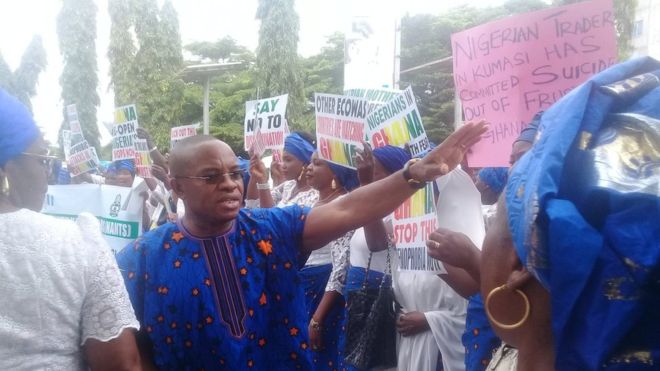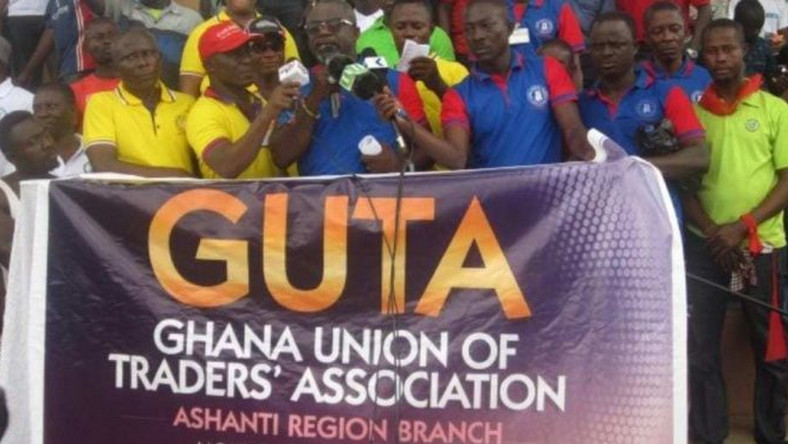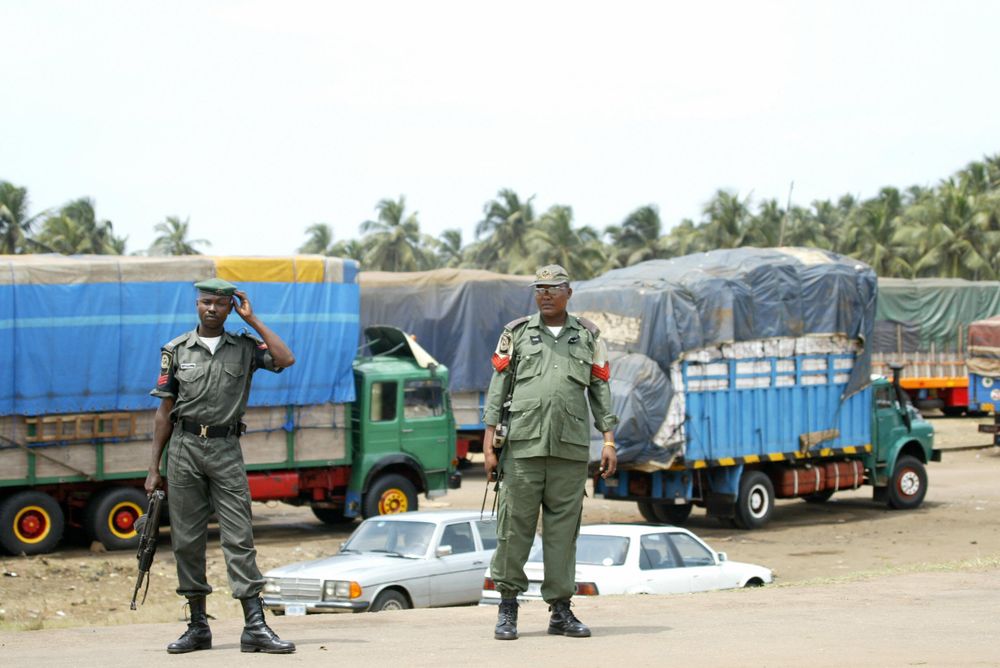GUTA, Nigerian counterpart, NUTAG, in a war of words over retail trading in Ghana
The Ghana Union of Trade Association (GUTA) and their Nigerian counterpart, Nigerian Union Traders Association, Ghana (NUTAG), have thrown verbal punches as they continue their turf war over retail trade in Ghana.
While the Nigerians insist Ghanaians in Africa’s most populous country are doing their businesses unhindered, their peers in Ghana maintained that they are not stopping Nigeria from enforcing its laws
GUTA says these confrontations are just actions by local retailers to preserve Ghana’s retail space.
Over the weekend, a press conference and a statement from the two bodies pulled out canons, with both sides firing verbal salvos.
It was NUTAG that drew the battle line first, sending a stern warning to their Ghanaian counterparts.
They urged GUTA to refrain from attacking and harassing their members doing legal retail business in Ghana or face the consequences.
Speaking at a press conference in Accra, the President of the association, Chukwuemeka Nnaji, observed that all manner of lies and propaganda have been peddled against the Nigerian traders by GUTA.
The aggression against the Nigerian traders, he said is ostensibly meant to push them away from the Ghanaian market in spite of the international trade agreement between the two countries.
Although the ECOWAS Protocol on the Free Movement of Goods and Services, allows citizens of the sub-region to move freely, doing business in each other’s country, local laws have often been a setback.
The protocol is modelled along with that of the European Union’s (EU) immigration laws on the movement of people and goods.
The free movement of goods is one of the four fundamental freedoms of the EU – together with services, capital and people – and a cornerstone of the single market. The rationale of an open market throughout the EU has always been to assist economic growth and competitiveness and therefore promote employment and prosperity.
But the ECOWAS version hardly works. Citizens travelling through the borders are harassed and monies extorted from them. Those who choose to trade in other countries face constant anger from local trade unions.
That appears to be the case of President of NUTAG, Chukwuemeka Nnaji when he met the media on Friday.
“How does GUTA feel when they realise that since 2007 they started their hostilities against us, we have not for one day locked any Ghanaian shop in Nigeria? Maybe they think we are foolish or we do not have laws in Nigeria”.
“They have used all manner of propaganda, including, Nigerians are selling substandard goods. Nigerians don’t pay duties on their goods. Nigerians are smuggling in their goods indicting the entire Ghana Customs just to make sure we close our businesses,” he alleged.
Ghanaians in Nigeria
He wondered what the reaction of GUTA will be when it finds out that some Ghanaians are presently in leadership positions in the National Association of Nigeria Traders (NANTS), the mother union of NUTAG.
” If you go to Nigeria today you will find thousands of Ghanaians and other ECOWAS citizens doing enterprise or sole proprietorship businesses, including barbering, taxi business, fishing, trading, hawking, unhindered by no agency of government.
“We are reminding GUTA that they are not doing Ghanaians any good by their unnecessary hostilities towards our members considering the age-long relationship between Nigeria and Ghana”, Nnaji said

Police alert
With Ghana the Police Service coming to the rescue of Nigerian traders a number of times, he alerted the police service of imminent threats.
“We call this press conference to alert the Ghana police of GUTA’S latest threat to take the laws into their hands. As usual, after the one week of a pack out order they issued to us, we are taking their threat seriously because in recent times it seems that GUTA can do anything they like”.
“Anytime a Nigerian commits a crime in any part of Ghana, GUTA will use it as a justification to put us out of business. An example is what recently happened in Kumasi after the alleged kidnapping incidents involving five Ghanaians and three Nigerians.
UTA’s case
However, responding to the allegations on Saturday, GUTA, in a statement, says it felt very sad that NUTAG describes its members as thugs at their press conference.

“It is important to mention that the behaviour and conduct of NUTAG in effect has closed all possible avenues of dialogue with GUTA,” it said.
GUTA’s case is grounded in Section 27 (1) of the GIPC Act, which states that, a person who is not a citizen or an enterprise which is not wholly-owned by a citizen shall not invest or participate in the sale of goods or provision of services in a market, petty trading or hawking or selling of goods in a stall at any place.
“Ghana as a sovereign state has her investment law, which is not being enforced over the past twenty years. All that GUTA has been calling for is to enforce the law to the letter, which of course, is our inalienable right as sovereign citizens of Ghana.
“It is important to know that, this law is not in contradiction with any international treaty or protocol, more especially the ECOWAS protocol, which some Nigerian traders led by National Association of Nigeria Traders and NUTAG contested at theECOWAS Community Court of Justice and lost.
Nigeria on August 20, this year closed its border to its neighbours, citing smuggling of rice and other commodities as the basis.
But GUTA will have none of it saying the ECOWAS protocol has severally been disregarded and abused by Nigeria as a member state by shortlisting about 45 products from the ECOWAS trade liberalization scheme (ETLS).
“ She closed her borders with other ECOWAS member countries and repatriates other ECOWAS citizens, all in the name of protecting her local industries and jobs for her citizens as a way of ensuring security of their state,” the statement said.

While ECOWAS leaders continue to sit aloof while their citizens battle out the right to trade in each other’s country, there are fears, particularly in Ghana and Nigeria, that South Africa’s version of xenophobia may just be in the horizon for both countries.



